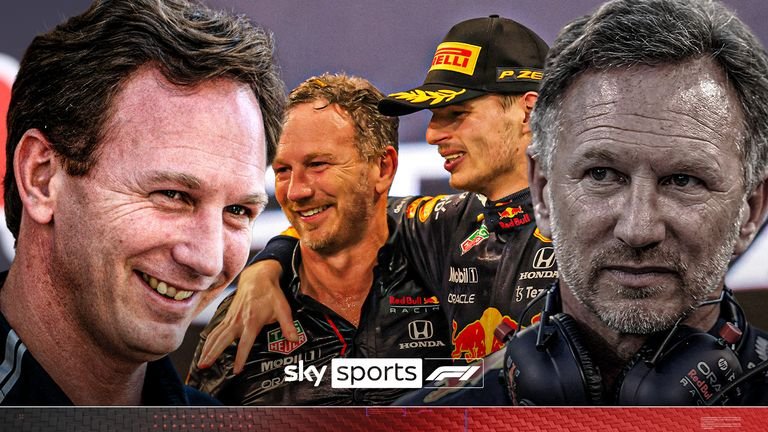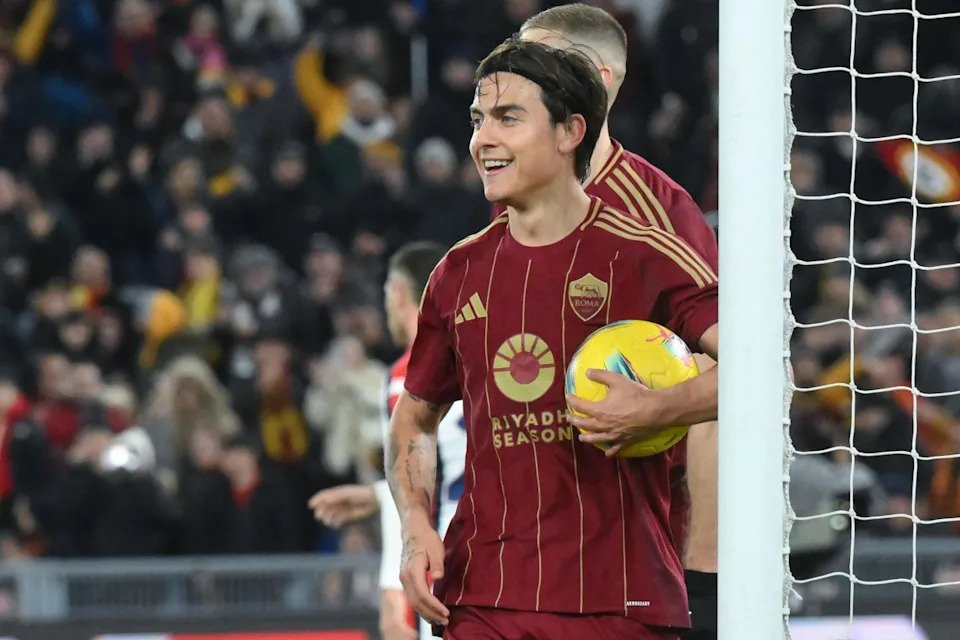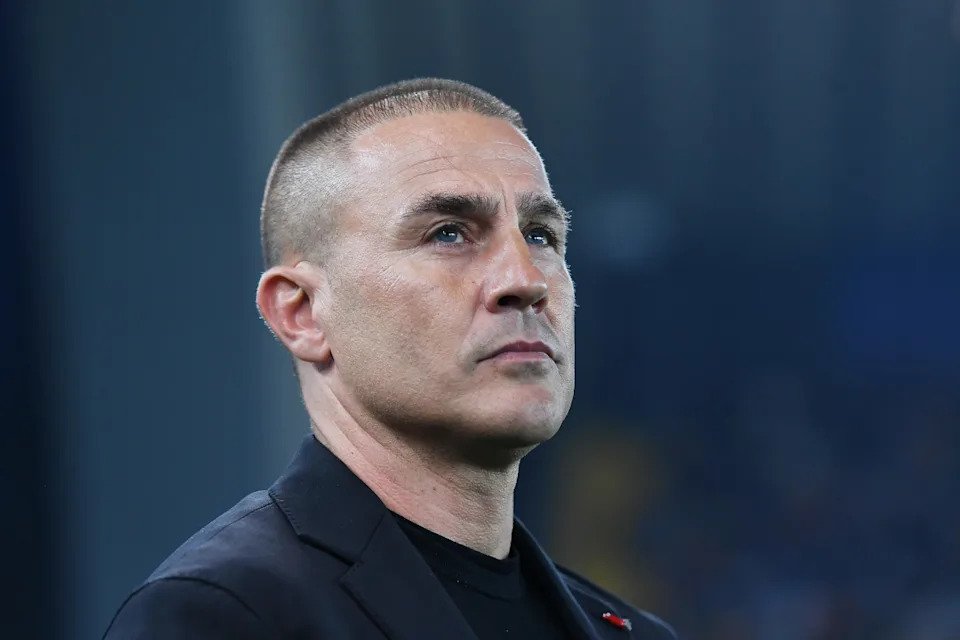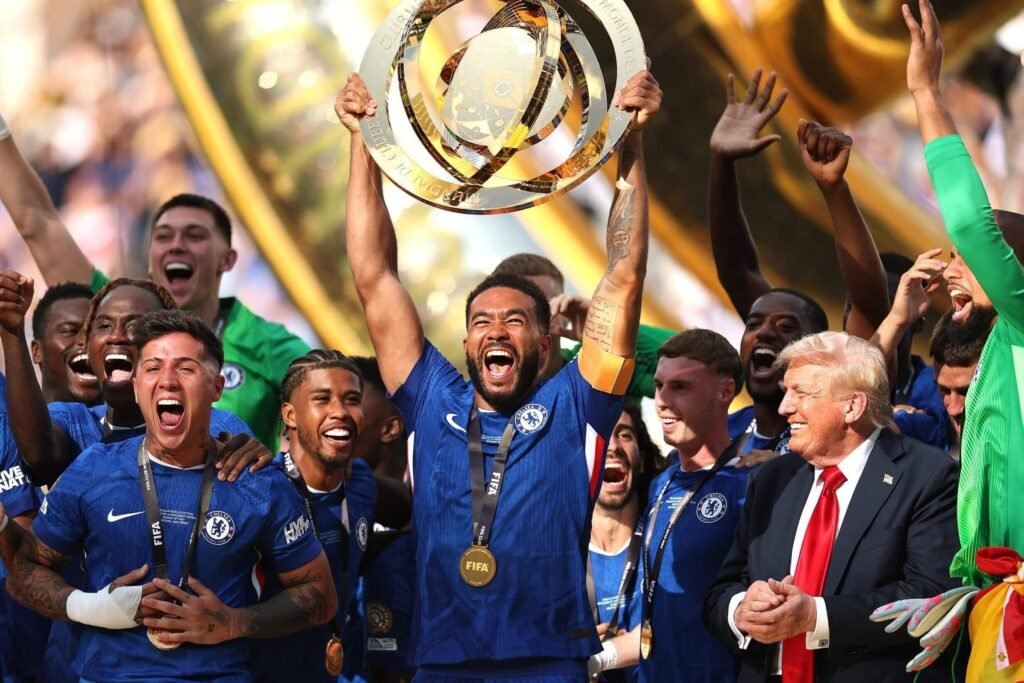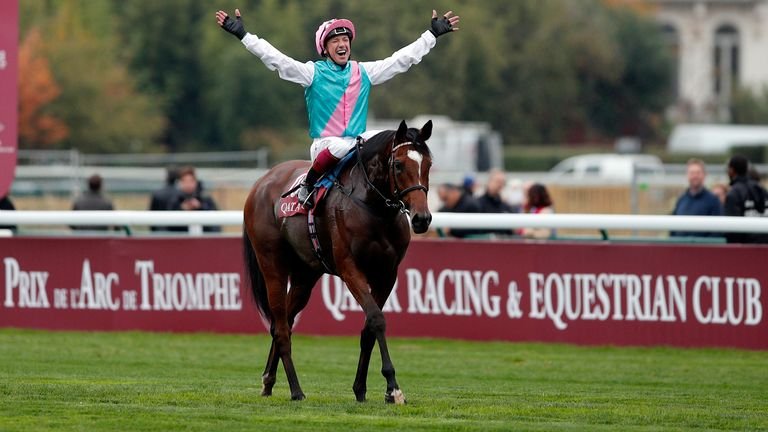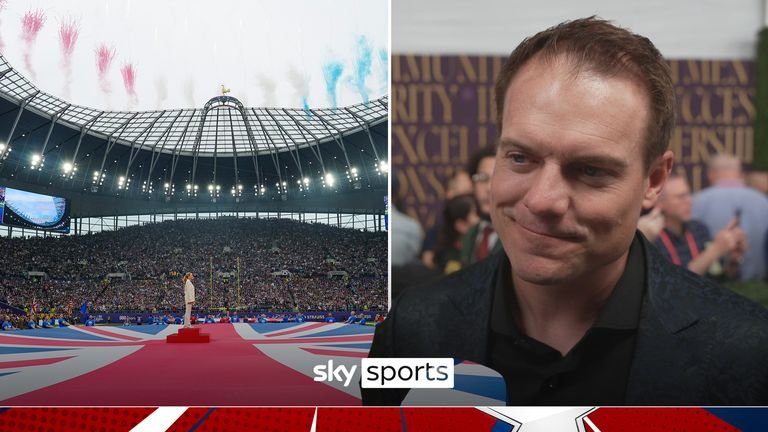Mohammed Kudus goes at his own pace. As an ever-expanding pile of breathless Premier League defenders would reliably attest, that can be a difficult tempo to match, but the composed 25-year-old is just as comfortable taking his time.
Even when he answers questions, each is prefaced with a noticeable pause, mulling over just the right words to describe the measured thought process behind a choreographed career path. Kudus is not to be rushed.
Tottenham Hotspur’s £55 million ($74.2 million) summer recruit had multiple opportunities to move to the Premier League before he eventually accepted West Ham United’s advances two years ago. After his first taste of Europe with Danish outfit FC Nordsjælland and a maiden campaign in the Netherlands at Ajax, Kudus had a jostling queue of suitors from England’s top flight knocking on his door. The money and glory on offer would have been instantly life-changing but his gut told him otherwise. The job had not been done.
“If I’m taking the next step,” Kudus says, “I really want to know that I’ve smashed it and conquered it.” The Danish and Dutch top flights would soon bend to his will and the Premier League is very much next on the list.
Sign Up to Get Informed With SI FC (US Only). dark. FREE NEWSLETTER. US Newsletter
Kudus’s hometown of Nima, Ghana, is a place battling against its reputation. The bustling town to the north of Accra, Ghana’s capital, is “most known for violence,” but, as Kudus is at pains to stress, has “a big love for sports.”
These stereotypes of crime and unrest did not influence Kudus’s childhood. His mother simply wouldn’t stand for it. Mariam “played both roles of being a mum and a dad at the same time” while working as a street vendor to support Mohammed and his siblings. She ran a tight ship at home.
“There were certain rules,” Kudus says, “if you don’t pass your school exams or your test, then you’re not going to play football. So I had to do it that way so that I can do what I love doing.”
Kudus admits that during his younger days, “it was hard to find a balance of going to school and playing at the same time,” but, with the power of hindsight, he is immensely grateful of the education his mother forced him to have.
“I think it [education] revolves around all aspects of life, not just football itself,” he says. “So even if you want to play professionally you still need some level of education, which so many things [revolve] around, like even sitting here and doing this stuff. Contracts, how to carry yourself as a professional, how to handle your socials. How to post stuff, captions. It literally revolves around anything. Education is very key. I’m playing football now so I’m relating it to that but it revolves around almost everything you want to do in this life.”
For all the time in the classroom, Kudus still found his way onto a few football pitches—if that’s what they could be called.
Accra’s expansion swallowed Nima in a burst of urbanisation from the 1960s onwards. Buildings with varying degrees of structural integrity sprouted up exponentially. In the absence of any green grass, Kudus and his peers had patches of sand to work with.
Just as Kudus’s character is a product of the firm educational foundations laid by his mother, his immense technical skill is, in part, a consequence of his uneven physical surroundings.
“I think on the grass pitch, receiving a ball, you automatically expect how the ball should come and bounce,” he says. “But on a sand pitch it can move anywhere. So you have to react quicker to controlling the ball … looking at it in a positive way, I think it helps in a way, if you can find your way through the sand with the bumpy ball.”
Blessed with a unique blend of grace and gusto, he would not be confined to Nima’s sandbox for long.
The prolific Right to Dream academy snapped up Kudus when he was just 12. The boarding school for Ghana’s most gifted young footballers has forged a reputation for unearthing some of the continent’s best gems. Fellow graduate Simon Adingra is one of Kudus’s Premier League opponents at Sunderland while his close friend Kamaldeen Sulemana moved to Champions League side Atalanta over the summer.
Kudus would impress the academy coaches with his skills and stubbornness. Mas-Ud Didi Dramani fondly remembers the sight of this scrawny teenager still playing in full contact training with his broken thumb strapped up in a cast.
FC Nordsjælland, the Danish top-flight side owned by the Right to Dream academy, signed Kudus to his first professional contract on his 18th birthday. Adjusting to the colder climate and what he describes as a wildly different “culture” forced Kudus to “blend in slowly,” yet he had established himself as a first-choice option in midfield by the end of his debut campaign.
That summer brought the first of many offseasons dominated by scuffles for his signature, but Kudus has never been a character easily swayed by outside noise.
“After the first season I could have left but I really wanted to smash the league. The following season I played everything,” he says with a shrug, “and I conquered it the way I wanted to conquer it.”
That conquest took the form of 11 goals from 22 league starts despite often operating in a midfield three. Such was Kudus’s form, he earned his first senior international call-up for Ghana in November 2019. Naturally, he marked it with a goal.
Turning out for Ghana is “the one with the biggest emotion and feeling” for Kudus. “When you play for a country,” he says, “that stays with you forever.”
A fully-fledged international and dominant force in Denmark, Kudus was “ready for the next challenge” by the summer of 2020. “I didn’t want to get complacent,” he says, but he also didn’t want to rush anything.
“Ajax was a big club and they were known for developing young talents and then selling them to bigger clubs, so I thought why not?” he says. “I had other chances where I could join. Even the Premier League straight away from Denmark. But looking at the gap in my development I thought it would be better to make the step in between to Ajax.”
The iconic Champions League anthem had barely stopped ringing in his ears by the time Kudus felt his knee buckle. Less than 10 minutes into his debut in Europe’s most prestigious club competition against Liverpool, the summer arrival had torn his meniscus. “Champions League was one of the stages, as a kid growing up, you work hard looking to play for,” he says. “And then, your first game there, you get a hit on the head. That was difficult to take.”
That injury would be the first in a series of frustrating fitness issues which derailed his bright start in Amsterdam. Kudus missed 50 games across his first two seasons at Ajax having barely been forced to sit out a training session. As ever, he leaned upon his sound fundamentals and took stock of the situation at hand.
“All those setbacks and injuries, you get to learn about your body, study yourself, so I put my effort into that,” he recalls with a grimace. “I had to really dig deep, change a lot of stuff personally, focus on my body and my mind.”
A personal trainer was hired and greater focus went into his recovery. The end of every match became the start of preparation for the next, taking advantage of his naturally low centre of gravity to forge a core which makes him practically impossible to knock off the ball. Kudus has scarcely missed a match through injury over the past two years.
This was also the time when Kudus, a self-declared “entertainer,”, evolved from a talented soloist to an accomplished member of Ajax’s orchestra, balancing his mazy forward bursts with measured interplay.
The time that Kudus had spent on the pitch during those first two seasons had been enough to attract his familiar gaggle of admirers. “I could have left again to some Premier League teams,” he says, “some other leagues—German, La Liga, also Serie A—but I had a couple of setbacks and I didn’t really conquer the league the way I wanted to.”
The 2022–23 campaign which followed saw the best of Kudus. Roving around the frontline with an elastic sense of menace, the increasingly prolific forward rattled in a career-best 18 goals across all competitions. The most significant strike came in September at Anfield. Almost exactly two years on from tearing his knee against Liverpool on his Champions League debut, Kudus struck an equaliser against the same opposition in the same cherished competition. Mission accomplished.
West Ham finally lured Kudus to the Premier League in 2023, fulfilling a childhood dream forged by years spent watching his idols Michael Essien, Asamoah Gyan and Sulley Muntari thrive in the blood and thunder of English football. Yet, Kudus is keen to stress that he is no prisoner to his boyhood ambitions.
“I also had to just feel it in my belly and then go with it,” he says. “If I didn’t feel like it, I don’t think I would have ended up here, irrespective of me being a big fan of the league or wanting to play here.”
That same intuition, a set of intangible inklings forged by his well-rounded upbringing, was the driving factor behind this summer’s controversial move from West Ham to their fierce London rivals Tottenham. When Kudus was asked why he crossed the capital divide, it was one of the few answers which didn’t require a great deal of thought. He simply replied, “My gut feeling.”
After shining in a West Ham side which collectively struggled, Kudus has made a strong start to life in north London. But it hasn’t changed his fundamental outlook on life.
“One day at a time,” is the message he lives by. “It’s easy to always focus on the bigger goal of always wanting to win the Champions League and World Cup but focusing on today’s training, step by step, gets you there. Just one day at a time.” As ever, Kudus will go at his own pace.

